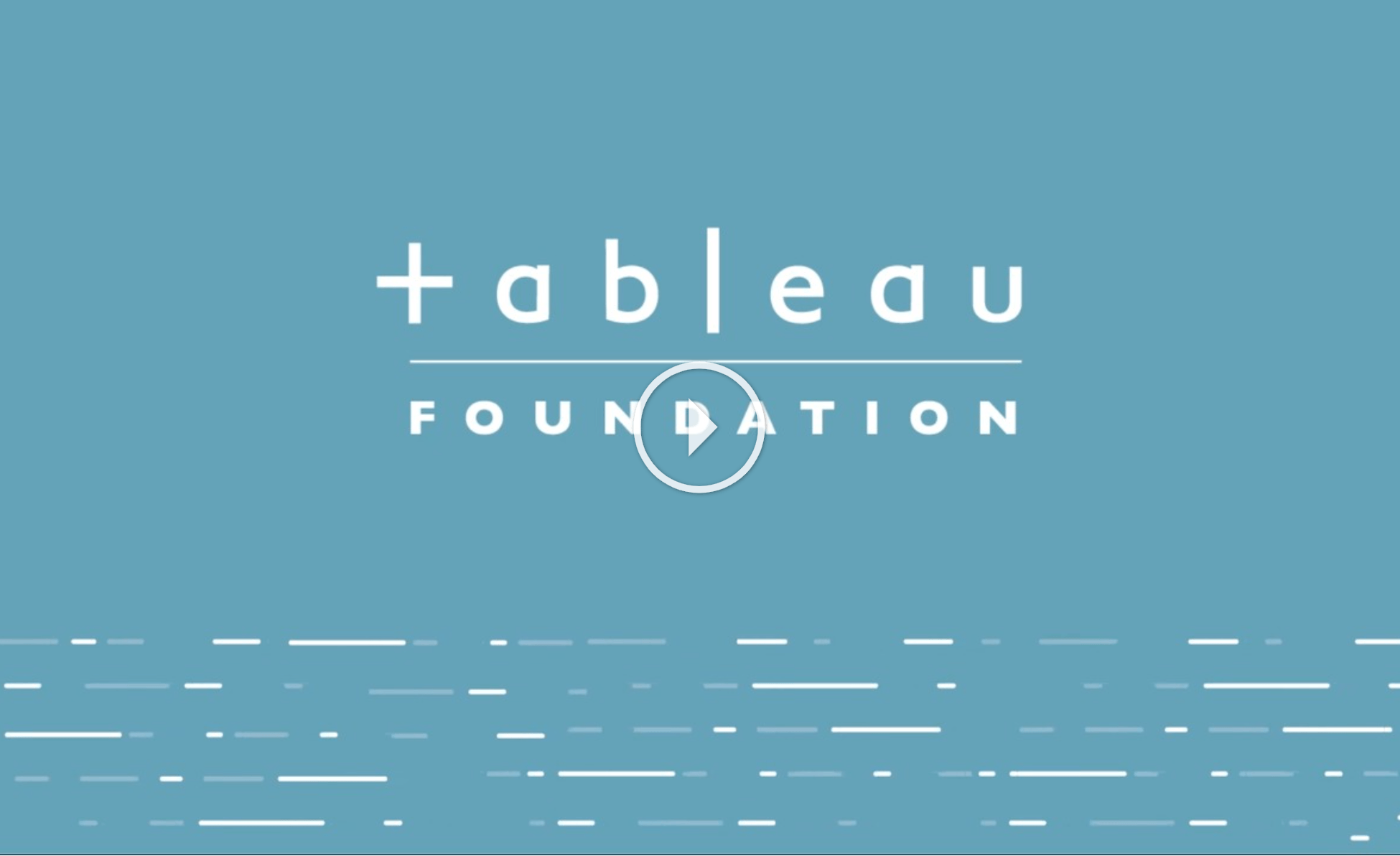Seeing and understanding people through data: Insights from Tableau Foundation Summit 2021
Every year that the Tableau Foundation team has hosted the Tableau Foundation Summit, we have chosen the event theme thoughtfully. We want it to reflect the work of our partners and the strides they are taking to make the world a better place with data.
This year, it felt important to ground our first-ever Virtual Summit, which took place in February, in the idea of not just what data can do, but the critical importance of looking beyond the data—to the lives and circumstances it represents. Our theme was “Visualizing Every Person: How Disaggregated Data Can Build a More Just World.”
In practice, what disaggregating data means is to break a data set into smaller sub-populations. For example, to see a topline count of homeless people in a city, but then go beyond that, and see every individual and their unique circumstances—from race to veteran status and how long they have lived without consistent shelter. As our partner, PolicyLink President and CEO Dr. Michael McAfee, said in his opening keynote address: “Your data is more than a mark on the screen—it is a person who is themselves facing their own health, economic, and social challenges.” Seeing the humanity within data sets is essential for catalyzing action.
We have made the content from our Tableau Foundation Virtual Summit available to explore how our partners are working with data to better understand and respond to the needs of the people they serve. We invite you to get inspired and create meaningful, lasting change.
- Learn firsthand from Community Solutions how their revolutionary approach to visualizing homelessness at individual levels in cities is helping end homelessness.
- Hear from Feeding America about how they use data visualization to understand and meet the growing need for food assistance during the pandemic.
- Our partners at Blue Ventures and Root Capital share how they empower individuals around the world with data to understand critical elements of climate change and conservation.

Watch the Tableau Foundation Virtual Summit 2021.
As you peruse these partner stories and the impact of disaggregated data on their work—especially on the communities they serve—it’s important to understand everything you learn within the context set by our summit keynote speakers, Michael McAfee and Shena Ashley, VP of Nonprofits and Philanthropy at the Urban Institute and member of the Racial Equity Data Hub Advisory Board.
Michael discusses the importance and potential of technology and advocacy coming together to take action based on what disaggregated data tells us about the state of the world, race, and equity. And Shena delivers an essential note of caution about the use of data for addressing injustices, especially race-based inequities. Historically, data to measure racial inequities has not gone far enough to explain the causes of disparities, or to point toward solutions. “What we need to develop together is a new imagination of what data in the service of racial equity looks like,” she says. That requires a thoughtful examination of traditional data processes, and how they might—even unintentionally—perpetuate harm. To “meet the challenge will require all of us—whether we produce or consume data—to be active in this work if we want to construct a social reality that is founded in both justice and joy,” said Shena.
This strong message from and the work of our partners sets the tone that data can be an essential part of creating a new world where justice and opportunities are available to all. But getting there will require reimagining how we work with and understand data.
As you consider making these changes, explore the compelling content shared during the Tableau Foundation Summit sessions that highlights how disaggregated data is opening a window on the needs of people and bringing about opportunities to help—now and in the future.
相关故事
Subscribe to our blog
在您的收件箱中获取最新的 Tableau 更新。








